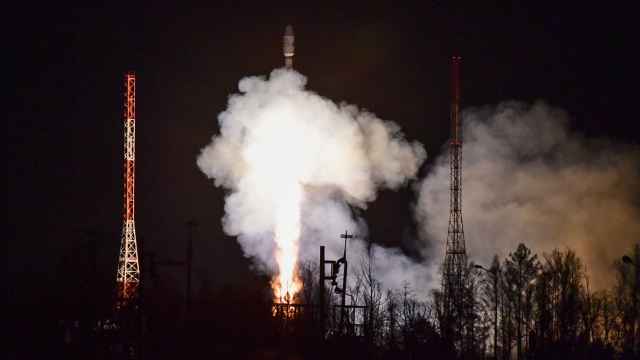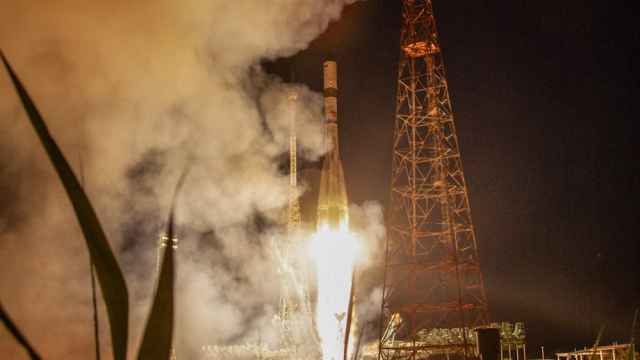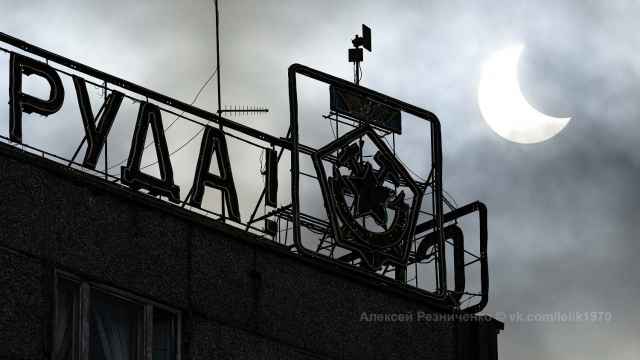Moscow State University (MSU), Russia’s oldest and most prominent higher education facility has announced it plans to open its own space faculty.
“We have been discussing this for quite a while now, and, actually, in a matter of days, we are going to open such a faculty,” the university’s rector Victor Sadovnichy told the TASS news agency on Nov. 21. The faculty will start operating next year, teaching a new generation of “space research specialists,” he said.
The ambition is to plug a hole in the Russian space industry that desperately needs young, world-leading specialists. In recent years, the industry has witnessed a growing number of embarrassing accidents and rocket failures. Last year, officials from Russia’s Roscosmos space corporation said that the sector will need to recruit at least 110,000 university graduates in the next decade if it is to revive fortunes.
According to Sadovnichy, MSU is the perfect platform for uncovering the professionals the industry needs. At its height in 1989, the Soviet space program employed over one million specialists and accounted for 1.5 percent of Soviet gross domestic product. But the industry has suffered deeply in over the past 25 years. Young people are not eager to work in the space program, and wages are low.
Education Not the Problem
Opening more educational facilities will not, on its own, stop the industry from going down, warns space industry analyst Pavel Luzin.
“We have a space academy in Siberia, several universities that specialize in technology all over the country have aerospace faculties,” Luzin told The Moscow Times. “It is just that their graduates are not keen to build careers in Russian space industry.”
Monopolized by the state, the industry indeed has little to offer to young aspiring professionals.
First of all, there is little money: a young engineer can count on 20,000-30,000 rubles ($311-$467), which is not much even in remote Russian regions. Second, the job itself is not very challenging: the industry is mostly dealing with old technology (most of the new inventions are not successful.) Finally, the moment a young engineer starts working at an aerospace factory, he becomes privy to state secrets and is no longer allowed to travel outside of Russia.
“In other words, a promising 22 or 23-year-old specialist turns into a serf from Imperial Russia,” says Luzin. “It is a serious demotivator.”
No to Private Initiatives
Private space projects and companies could, in theory, keep talented youth in the country, offering them decent salaries and challenging tasks. Such initiatives would also make the industry more competitive and contribute to the country’s economy.
“Many services are only possible because of satellite technologies, like weather monitoring, Internet reception, geolocation,” says the former State Duma deputy Dmitry Gudkov, who unsuccessfully lobbied a bill on private cosmonautics. “These services have become part of our economy, and they can and should be carried out by private companies.”
But the Russian state isn’t keen on private enterprise entering the aerospace industry, which is why Gudkov’s bill on easing bureaucracy for private space projects never passed.
Just a Gesture
In such circumstances, the launch of a new space faculty is unlikely to change much. For the most part, it should be seen as a political gesture on MSU’s part, says Luzin: “It’s their way of showing that they’re following the trends and are ready to serve to the Kremlin’s needs, rather than representing a real strategy to revive the industry.”
The new faculty has yet to offer real detail on what kind of specialists it plans to develop: will it be engineers, mathematicians or physicians? What would make its graduates different from similar ones from other faculties? A request for comment, sent by The Moscow Times, went unanswered by the time this article went to press.
A Message from The Moscow Times:
Dear readers,
We are facing unprecedented challenges. Russia's Prosecutor General's Office has designated The Moscow Times as an "undesirable" organization, criminalizing our work and putting our staff at risk of prosecution. This follows our earlier unjust labeling as a "foreign agent."
These actions are direct attempts to silence independent journalism in Russia. The authorities claim our work "discredits the decisions of the Russian leadership." We see things differently: we strive to provide accurate, unbiased reporting on Russia.
We, the journalists of The Moscow Times, refuse to be silenced. But to continue our work, we need your help.
Your support, no matter how small, makes a world of difference. If you can, please support us monthly starting from just $2. It's quick to set up, and every contribution makes a significant impact.
By supporting The Moscow Times, you're defending open, independent journalism in the face of repression. Thank you for standing with us.
Remind me later.






